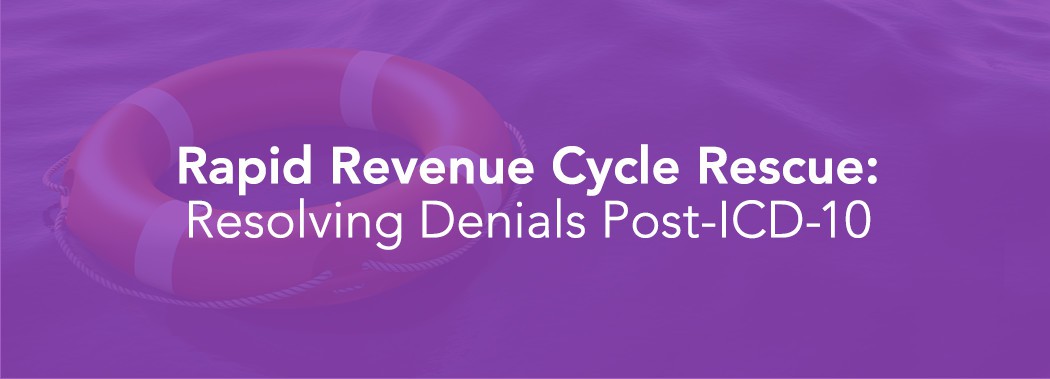By Charles Kaplan, General Manager, NextGen RCM Services
We are over the ICD-10 implementation hump; however, the transition doesn’t end there. Practices still have work to do to ensure they get paid.
To date, it appears ICD-10 did not make a big impact on denials. The transition to ICD-10 may turn out to be another Y2K: lots of expectations of mayhem, but in the end, no big impact on day-to-day business. However, practices should keep in mind that the Centers for Medicare & Medicaid Services (CMS) and the American Medical Association (AMA) announced no claims will be denied based solely on the specificity of the ICD-10 code for 12 months after implementation. So until October 1, 2016, if you correctly select the category of family you are good to go.
Because of this it may be too early to discount the impact of ICD-10 on your denials. We still have some concerns that issues may arise around specificity, and you should be concerned too. To ensure your revenue is on track post-ICD-10, effective denial management can increase healthcare collections and is a great place to start if you see your cash flow take a downward turn.
Quickly deal with denials as they come in to minimize the impact to your cash flow
The first thing I would recommend to boost the efficiency of your denial management process is taking steps to ensure denials are being worked in a timely manner by the right people. A methodology and best practice we use, and have found great success with at NextGen RCM Services, is putting in place a pre-determined matrix of automated tasking that drives the work to the right people at the right time. For example, we route denials related to eligibility directly into the work queue of an associate who specializes in eligibility. The people who should work the more complex cases are routed the appropriate tasks for follow-up so the billing staff doesn’t define their own work day.
Five to 10 years ago, collections would come in and staff members would choose which jobs they wanted to work first. But in today’s reimbursement environment, where the cost to collect is much higher, we need to be more efficient. In order to close the gap on rising operating costs, practices really need to route those denials to the appropriate people and tell them what they will work on that day.
Some tools to stay ahead of the curve
Free Educational Webinar For more tips like this watch our recent Webinar “Rapid Revenue Cycle Rescue: Resolving Denials Post-ICD-10.” In this high-energy session you will learn:
- Identification and analysis of post-ICD-10 denials
- How to prioritize and route denials for successful resolution
- Denial prevention efforts to take post-ICD-10
- Leveraging technology and best practices to optimize revenue and accelerate cash flow

